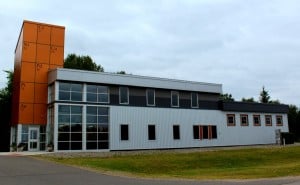
In the Wilderness News magazine last summer, I wrote that “The only thing slower moving than the development of a new copper mine is probably the geologic forces that created northern Minnesota’s mineral deposits.” But, just this month so far, there have been several big developments in the effort to open such mines – and efforts to stop them.
Earlier this month, the state of Minnesota declared PolyMet Mining’s environmental review was “adequate.” The proposal will now go into the permitting phase. Then, Governor Mark Dayton sent a letter to Twin Metals, stating his opposition to mining in areas where the water flows toward the Boundary Waters Canoe Area Wilderness. Dayton has stopped any new mineral leases on state lands near the BWCAW.
The excitement wasn’t over yet. Here are a few more recent developments on the issue:
Federal land managers reject automatic renewal of Twin Metals’ leases
The day after Dayton declared his opposition to mining near the Boundary Waters, a federal agency delivered another blow to the proposal. Two of the federal mineral leases Twin Metals owns were first issued in the 1966, before modern environmental laws and the rigorous review now required.
While the mining company had hoped to automatically renew its leases after they expired in 2013, the U.S. Bureau of Land Management (BLM) will conduct an environmental review before even considering whether or not to renew them.
An Interior Department’s lawyer told the BLM’s that Twin Metals does not have an automatic right to renew the leases and that the bureau has discretion to grant or deny the application. The original leases required mining to begin within twenty years, and Twin Metals is still only doing exploratory drilling on the leased land.
The company can still apply to renew the leases, but the process of evaluating their application and conducting environmental review may take multiple years.
Rep. McCollum calls for watershed protection
Congresswoman Betty McCollum, representing Minnesota’s Fourth District, in the St. Paul area, continues to call for a moratorium on mining near the Boundary Waters. She sent a letter to three advisers to President Obama on February 2, asking for action to block mine development.
Writing to Secretary of Agriculture Tom Vilsack, Secretary of the Interior Sally Jewell, and Director of the Council on Environmental Quality Christina Goldfuss, McCollum requested the Obama administration deny renewal of copper-nickel mining leases on Superior National Forest lands, withdraw the area from new leases for 20 years, and halting all pending leases.
McCollum wrote, “Proposed sulfide-ore copper mining on federal land in the [Rainy River] Basin poses a direct, irreparable, and unacceptable threat to over one million acres of protected federal land and waters.”
Poll finds public opposition to mining near Boundary Waters
Sixty-seven percent of Minnesota voters don’t think new copper-nickel mines should be allowed in areas where water flows toward the Boundary Waters Canoe Area Wilderness. That was the key finding of a February poll paid for by the Campaign to Save the Boundary Waters and conducted by Washington-based Anzalone Liszt Grove Research.
The poll also found that 65% of Minnesotan voters believe the Boundary Waters watershed should be permanently protected, including 59% of voters in northeast Minnesota’s Eighth Congressional District.

